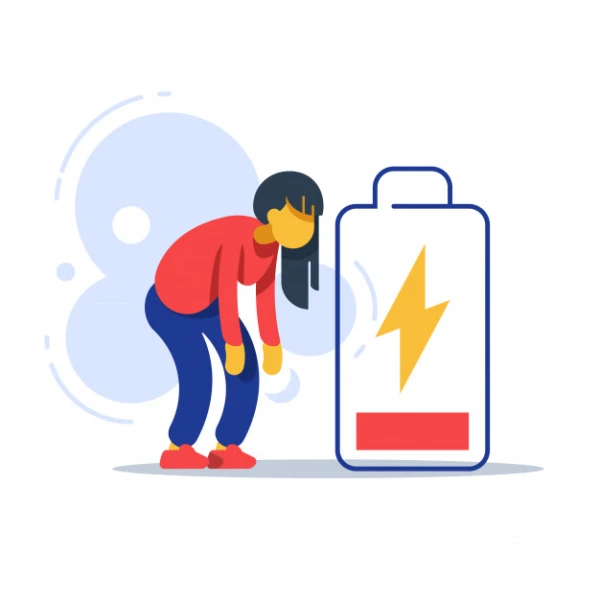Mr. Sundar (name changed) does not feel fresh upon waking up in the morning. He falls asleep as he watches television, or when he is reading a book or newspaper. He tires easily and does not have much energy even for routine activities. Mr. Sundar is afflicted with fatigue – a common non-motor symptom in Parkinson’s Disorder (PD). It can happen at any point during the disorder, irrespective of whether movement symptoms are mild or severe. The actual cause for chronic fatigue is still unknown. It is, however, believed that it could result from muscles getting tired due to motor symptoms such as tremors and stiffness. While fatigue is not sleepiness, a person who experiences fatigue could feel exhausted despite being well-rested. Some of the manifestations of fatigue are —
- Physical fatigue — feeling deeply tired despite rest
- Mental fatigue — mental tiredness that can affect concentration
Before considering help from a doctor or changing medication, performing a complete medical check-up can help rule out non-Parkinson causes. Reasons such as anemia can also make a person fatigued. Once the fatigue is classified, the next step in easing the fatigue associated with PD is to identify the causes of tiredness, such as sleep issues, depression, or wearing off of medications.
Tips to combat fatigue
A few lifestyle changes to handle fatigue better –
- Regular exercise can help one feel energized.
- A brisk walk in the morning and mild yoga stretches at the end of the day.
- Sleep is essential to fight fatigue.
- Avoid long naps during the day, aim for 10-30 minute‘power’ naps. This will not disrupt the sleep cycle at night.
- Avoid distractions such as TV in the bedroom as they can disturb sleep schedule.
- Stress and fatigue are related. Check to see if there are specific stress-triggering factors.
- Meditate or practise mindfulness to minimize stress and tension.
- Eat fibre-rich food (e.g. guava, papaya, pears, chickpeas, chia seeds). It will help reduce constipation and keep energy levels up.



